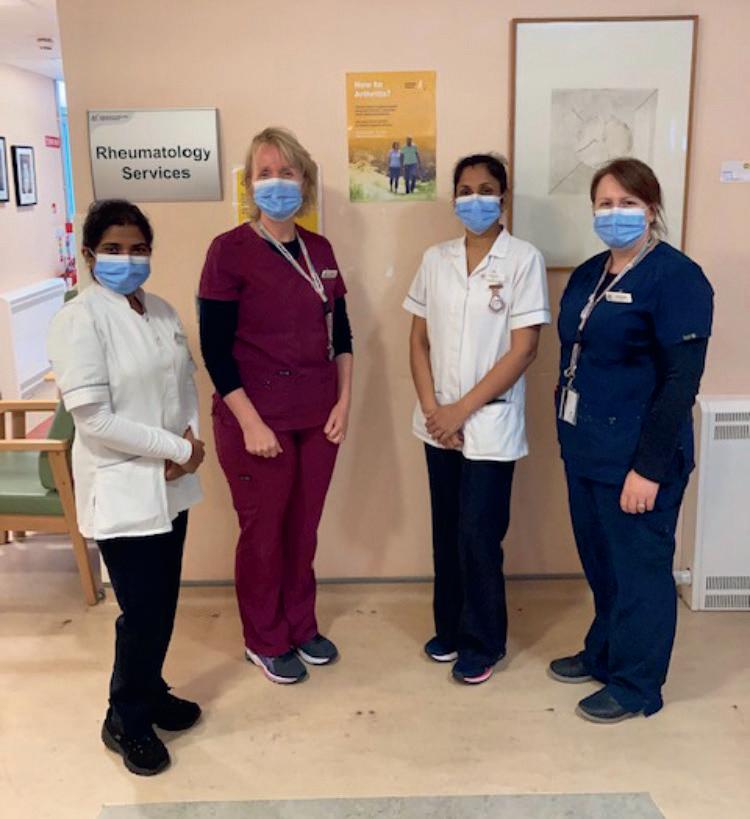
2 minute read
Rheum to Recover initiative
RHEUM TO RECOVER



Restrictions imposed by COVID-19 have brought significant challenges to patients with a chronic illness like arthritis, affecting both patients’ physical and mental health. Using a self-management technique known as Bridges self-management in face-to-face consultations, the Rheumatology Nursing team at University Hospital Waterford (UHW), through their Rheum to Recover programme, are helping patients identify difficulties with their health as a consequence of COVID-19 that are potentially affecting their arthritis.
“Now that patients are returning to our service, we want to encourage patients to adapt a ‘living life well with arthritis’ post-COVID approach,” explained Advanced Nurse Practitioner Una Martin. “The rheumatology nursing team observed that patients returning to the service had a number of challenges with their general health. We noticed increases in weight, rise in cholesterol levels, a return to smoking and alcohol consumption. We also noted some changes in patients’ psychological health with many reporting anxiety, depression and lack of motivation to maintain a regular routine. This prompted us to look how the nursing team could approach this in a
ABOVE: The Rheumatology Nursing team at UHW: Sta N urse Sajitha Pushpangadhan; Una Martin, Advanced Nurse Practitioner; Sreeja Nair, Sta Nurse; and Paula Dreelan, Clinical Nurse Specialist.

positive but supportive way for our patient cohort.”
Una explained that using the language of Bridges self-management, the team put together a patient leaflet that supports them in making the necessary changes to their lifestyle in small steps. “In consultation with the patient, we will help them identify some of the challenges that they have encountered in the last number of months and work towards making a change in their health going forward and the benefits this can bring in managing their arthritis,” she said.
“Using the Bridges technique is so relevant in the current climate when patients need a helpful and supportive relationship with their healthcare team in an uncertain time. The language of Bridges helps patients feel they are listened to and supported to work on things that are important to them.”
The ANP stressed that recognition that management of chronic illness is changing and managing lifestylerelated diseases particularly post-COVID is vital as it can influence patients’ outcomes in the long-term.
“Understandably, most of the healthcare focus has been on prevention and treatment of COVID-19 since February 2020. However, the restrictions and implications of the pandemic are now being seen in patients living with a long-term illness like arthritis. The consequences and the persistent unfamiliar pathway for both patients and healthcare staff makes it all the more imperative that we address these challenges for patients now as we continue to grapple with the ever changing situation of COVID-19. Lifestyle-related diseases will have long-term negative outcomes for patients living with inflammatory arthritis,” added Una.











